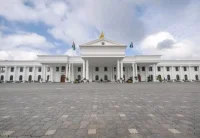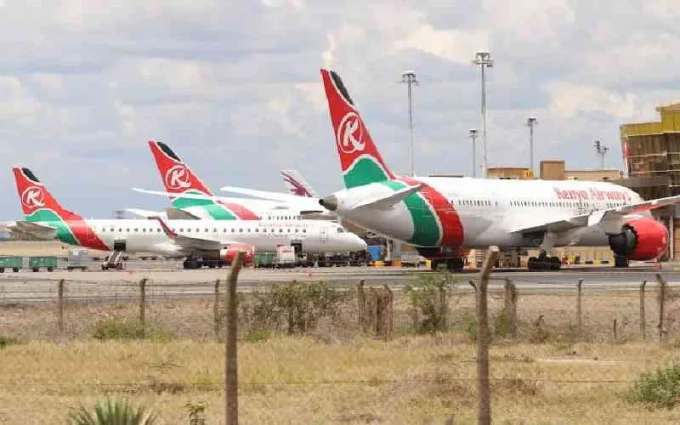NAIROBI-KENYA: Kenya’s civil society on Wednesday strongly opposed the enactment of the Value Added Tax (VAT) Bill 2012 which will impose 16 percent tax on basic food commodities.
Speaking to journalists in Nairobi, Africa Bureau of Tax, Consultant Bosire Nyamori said that the proposed VAT will affect the poorest households the most as it will increase cost of many basic food items.
“Due to the fact that low income segment spends a significant proportion of their income on food items, the VAT will put the necessities beyond their reach,” said Nyamori who is also a member of the umbrella body, East Africa Tax and Governance Network which comprises of 13 civil society organizations.
He noted that before the government introduces a new tax it should consider whether it is fair to all members of society.
“The government has not mentioned tax fairness as a reason for reviewing the current VAT laws,” the civil society official said.
Consumer Information Network (CIN) Program Officer Emma Wanyonyi said that while it is the wish of the government to increase tax revenue collections, it should do it at the expense of the vulnerable people.
Wanyonyi said that the taxation regime should charge taxes that are commensurate with incomes.According to the civil society, the proposed tax is a regressive tax because the burden of payment falls disproportionately on the poor as a greater share of their income is spent on consumers goods compared to the higher income households.
“The government should rescind its decision to introduce VAT on basic commodities such as maize and wheat flour, milk, bread and sanitary pads,” she said.
According to the ministry of finance, the bill will reduce the number of zero rated products from 400 down to nine at the same time impose a standard rate of 16 percent across many products that once exempted.
CIN said that bill could lead to price hikes and citizens could complain resulting in a social revolt. Vice Chairman of the Parliamentary Public Accounts Committee Thomas Mwadeghu said that the VAT will increase the cost of living especially among the poor.
Mwadeghu who is also a lawmaker said it will be difficult to put in place mechanisms to relieve the poor tax payers who will be subjected to the new levy.
“The identification of the needy who should receive cash transfer to mitigate the effects of VAT will be complicated undertaking,” Mwadeghu who also holds the chair of the local funds committee in parliament noted.
“International best practice requires that when a country introduces new taxes it should also put in place measures to mitigate its impact on the poor,” he said. The parliamentarian said that Kenya is yet to introduce welfare programs that will shield the poor.
He noted that Kenyans have a heavy tax burden compared to the rest of the East African community and a lot of studies need to be done before any new tax is imposed.Kenya Revenue Authority (KRA) Senior Deputy Commissioner Joseline Ogai said the need for a simplified tax regime that is easy to comply with is one of the reasons for reviewing the VAT laws.
He said that the new VAT will increase country revenue as the present VAT requires that the government foregoes over 1.19 billion U.S. dollars annually in form of remissions, exemptions and refunds.
Ogai said the current VAT bill is also expensive to the business community as it consumes up to 70 percent of time required to file for taxes due to its complexity.
“As a result the KRA only collects 27 percent of its revenues from VAT against the target of 30 percent,” the commissioner said.
According to the KRA, international best practice is that VAT should account for 35 percent of all revenue taxation revenues. The tax official added that the bill also contains a provision that caters for a three year transition period before the VAT law takes effects.
“Due to the fact that most of the poor consume unprocessed food, this category of goods will be exempted from VAT,” he said. He said that VAT will also help the country reach its revenue targets.
“With the new law, we hope to widen the tax bracket and use the revenues to increase government expenditures on social services such as education and health in order to reduce the any distortions in the economy,” he said. (Xinhua)
















































![Pula Co-Founders and Co-CEOs, Rose Goslinga & Thomas Njeru. Pula provides agricultural insurance and digital products to help smallholder farmers manage climate risks, improve farming practices and increase their incomes. [ Photo / Courtesy ]](https://businesstoday.co.ke/wp-content/uploads/2021/01/Pula-Co-Founders-and-Co-CEOs-Thomas-Njeru-Rose-Goslinga.jpg)



























































Leave a comment